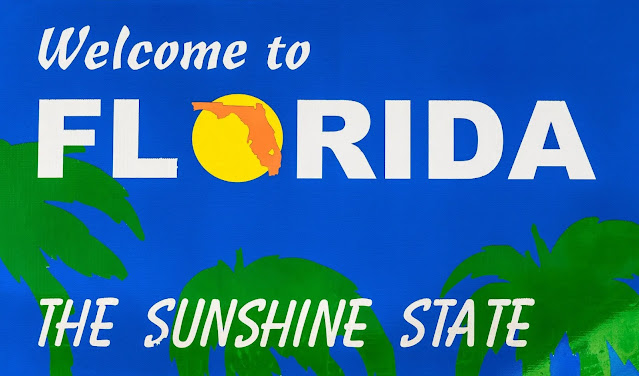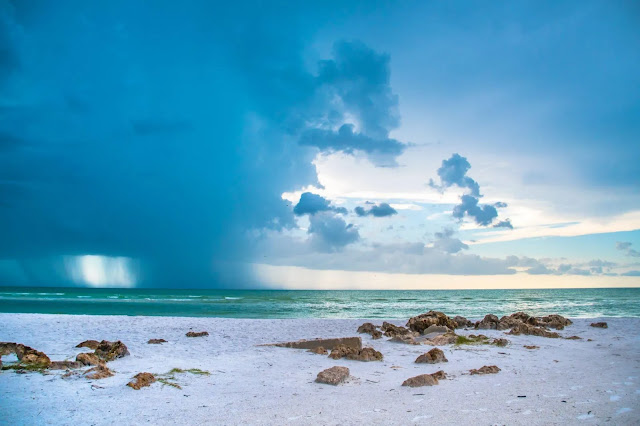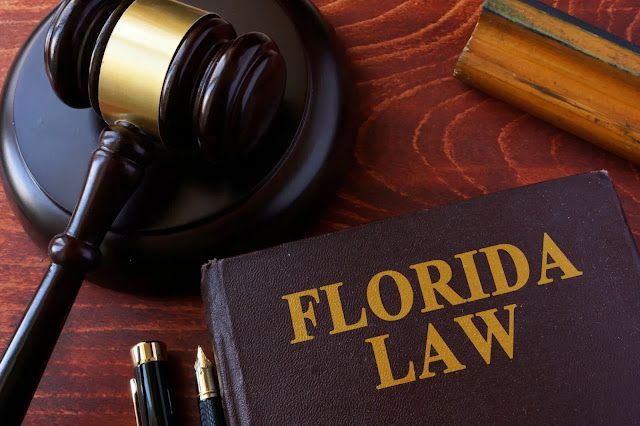To settle down in the state of Florida, please read the comprehensive guide given below which covers everything you need to know for settlement in the state of sunshine.
What are the Key Considerations for Settling Down in Florida?
Making the decision to relocate to Florida is exciting, but also requires thorough research and planning. Before packing up and moving south, you'll want to explore key factors like cost of living, job opportunities, climate, lifestyle, and more to determine if Florida is the right fit for you. Being informed on issues that impact daily life will ensure a smooth transition when you make your move.
What is the Cost of Living in Florida?
The cost of living in Florida is $2408, which is 1.16 times more expensive than the average in the United States. Many relocating from other parts of the country experience sticker shock when seeing Florida prices. While wages tend to be lower than in northeastern states, Florida residents do benefit from the lack of state income tax. Do your homework to understand how budgeting and finances may need to adjust.
Different regions and cities have varying affordability - try not to generalize the entire state together. For example, housing is typically most expensive in South Florida metro areas while the panhandle or towns inland may offer lower costs. Run the numbers for your specific situation. Cost of living calculators can provide estimates tailored to the Florida city you’re interested in.
How Much Does Housing Cost in Florida?
Shelter is usually the biggest expense. Florida is known for high rent and property values, especially in metropolitan and coastal areas which draw transplants, snowbirds, and investors. Limited supply amidst booming population growth further drives up housing demand. With bidding wars common, it helps to increase your budget. Condos and townhomes offer lower-cost ownership options.
If a beachside lifestyle is your priority, brace yourself for the housing prices in paradise. However, cheaper suburbs or smaller towns can provide savings for budget-focused homebuyers. Where you choose to live plays a large role in determining affordability. While Miami and Naples may be out of reach, other parts of Florida offer relatively cheap places to call home if you search thoroughly and remain open-minded.
What is the Average Cost of Utilities in Florida?
Prepare for heftier utility bills as cooling a home in Florida’s humidity and heat can get expensive, especially compared to milder northern states. Summers usually bring the highest electric bills. However, you’ll likely spend less on heating during the winter months which rarely dip below sixty degrees in the southern parts of the state.
Water bills may also be higher thanks to greater usage for irrigation, pools, and thirstier landscaping. To offset costs, focus on energy efficiency and water conservation in your new home. Pay attention to monthly kilowatt hours and thermostat settings to control energy expenses. Installing solar panels can also help in the Sunshine State.
How Much Should I Budget for Groceries in Florida?
In Florida, a family of four can expect to spend an average of $10,385 on food in 2022. Grocery costs are similar to national averages across most of Florida. One advantage is the abundant selection of fresh, seasonal produce that flourishes in the growing conditions. You’ll have access to diverse fruits and veggies - stock up on oranges, grapefruit, avocados, mangos, and more grown locally across the state. Imports from the Caribbean and South America also expand variety.
Groceries may cost a bit more in popular snowbird retirement communities and tourist destinations. Bulk up on non-perishables when they go on sale. Seek out Latin markets for spices and specialty ingredients. Overall, you can find ways to eat well without breaking the bank if you shop strategically.
What is the Job Market Like in Florida?
While Florida may conjure images of retired sunseekers, plenty of residents also work full-time jobs across growing sectors of the economy. Unemployment rates are on par with national averages, pointing to a relatively healthy job market. Strong population growth also boosts demand for goods and services.
What are the Top Industries in Florida?
Service sector careers in tourism, healthcare, and education represent major employers, but opportunities exist across diverse fields, especially within larger metros. Finance, construction, real estate, STEM, and trade jobs also have a strong presence thanks to Florida’s vibrant business climate.
With no state income tax, Florida also attracts companies looking to relocate. The governor actively recruits businesses promising continued economic expansion. Review industry forecasts for in-demand roles leveraging your skill set and experience when job hunting. Attend networking events to build connections.
What is the Average Salary in Florida?
The average annual salary in Florida is $48,620. Salary levels correlate with cost of living demands, resulting in middle-of-the-road wages. Florida workers make around the national median income. However, seasonal residents and tourists drive service sector salaries upward in cities catering to visitors like Orlando and Miami. Thriving industries like technology and aviation also boast higher pay.
Remember that incomes stretch further without state tax deductions. If able to secure the same salary as previous locations, you may find yourself better off financially in Florida when accounting for lower tax burdens. Do a side-by-side comparison of your take-home pay. Max out retirement contributions as well since Florida offers tax perks for retiree income.
What is the Climate Like in Florida?
Blessed with a subtropical climate, Florida lives up to its “Sunshine State” nickname with warm weather most of the year. Temperatures typically range from 60 to 90 degrees Fahrenheit. While heat and humidity characterize much of the state, localized differences create diversity. Key factors like latitude, proximity to the ocean, and elevation impact regional climates.
What are the Seasons Like in Florida?
Instead of four distinct seasons, North Florida experiences mild winters and hot, humid summers. Central Florida still has a rainy season around August. South Florida’s climate is mainly tropical with minimal temperature fluctuation.
Snow is rare, even in northern regions - Florida’s capital Tallahassee only gets trace amounts once every few years. Pack light jackets for cooler winter evenings but otherwise prepare for perpetual summer. After moving from places with dreary winter weather, Floridians live for sunshine year-round.
How to Prepare for Hurricane Season in Florida?
Located where the Atlantic Ocean and Gulf of Mexico meet, Florida faces hurricane threats each year from June 1 to November 30. Storms often make landfall across the state’s extensive coastlines. Flood-prone areas and mobile home parks are also at risk.
To prepare, stock up on emergency supplies, trim trees around your property, purchase flood insurance if needed, and map out evacuation routes well ahead of time. Have battery-powered devices, water, non-perishable food, and other essentials ready to weather out storms. Listen closely to weather alerts and mandatory evacuation notices.
How to Find a Home in Florida?
With endless options across a vast peninsula, picking the right place to put down roots can feel overwhelming. Do your research to find the ideal fit based on priorities like affordability, amenities, commute times, and more.
What are the Best Cities to Live in Florida?
Affordability, amenities, transportation, entertainment, and job prospects all impact livability. South Florida offers vibrant diversity and culture alongside high costs. Central Florida provides theme park access and inland affordability. North Florida appeals to college town enthusiasts and nature lovers.
Think through climate preferences too - south and coastal areas are hottest year-round. Check out niche rankings assessing criteria important to you. Visit top contenders to get a feel for the vibe before committing. There’s likely a tailored fit among Florida’s diverse urban landscapes.
What are the Best Neighborhoods in Miami?
Greater Miami comprises a mosaic of neighborhoods each exuding distinct vibes. Nearby beaches attract tourists but locals embrace the culture. From hip Brickell and artistic Wynwood to posh Coral Gables and laid-back Coconut Grove, neighborhoods cater to varied interests.
Consider proximity to your workplace while assessing amenities, character, and costs. Metro access can ease commutes in sprawling Miami-Dade County. Talk to locals before settling on sections matching your speed - Miami has options for almost every lifestyle.
What are the Best Neighborhoods in Orlando?
Home to theme park tourism, Orlando also contains quiet residential enclaves. Disney employees often reside around Kissimmee for proximity to the Mouse. College Park’s bungalows appeal to professors and students.
Upscale Windermere and Winter Park villages attract families with picturesque downtowns and highly-ranked schools nearby. Diverse neighborhoods around the metro area provide options from rural acreage to modern condo towers in the heart of the city. Choose what fits your family’s needs.
How to Find a Real Estate Agent in Florida?
A knowledgeable real estate agent acts as your guide through the home-buying journey. Find candidates experienced specifically in your desired Florida location, not just generically statewide. Local expertise helps spot issues and opportunities. Ask friends for referrals or research online reviews.
Interview agents about their background. How long have they worked in the neighborhoods you’re eyeing? What’s their sales volume and success rate with offers? Make sure you clearly convey your wish list for them to match. The right agent becomes your advocate.
What to Look for in a Real Estate Agent in Florida?
Seek out full-time realtors active in Florida communities. Beware part-timers chasing quick sales. Ensure they have the resources to search the local MLS database for homes meeting your criteria. Moving to Florida signals a major life transition. You need someone invested in finding your ideal home.
Communication skills are also key. Look for patience and honesty even when breaking bad news about losing a bid. Feel confident your agent has the tenacity to keep showing houses until discovering “the one”. Homebuying is an emotional rollercoaster so choose an agent ready to hold your hand through peaks and valleys.
How to Choose a Home in Florida?
Consider priorities like neighborhood vibe, amenities, school districts, and commute distance to work. Focus on needs vs. wants - granite counters are nice but functional AC is essential. Think long-term about resale value and adaptability as family situations evolve.
Crunch numbers to determine mortgage affordability plus insurance, taxes, maintenance, and utilities. Drive around at varied times checking noise levels and traffic. Don’t just visit on weekends when part-timers are away. Get to know the community’s everyday rhythms. Finding the perfect nest takes effort but reaps rewards.
How to Move Your Belongings to Florida?
Moving your household cross-country or internationally takes planning and preparation. Scale down belongings through purges, sales, and donations - Florida’s warmer climate may not require bulky coats and such anyway. Carefully pack and transport essentials while adhering to your moving budget.
What are the Best Moving Companies for Florida?
Spend time vetting movers catering specifically to Florida instead of choosing blindly. Are they licensed, insured, and well-reviewed? Obtain binding estimates from multiple services. Discuss guaranteed pickup and delivery dates, claims processes, and replacement value coverage. This big expense deserves due diligence.
For interstate moves, check the company’s DOT number. Verify movers provide complete, professional packing services - Florida’s humidity can warp improperly packaged items. Reputable Florida movers make the journey smooth sailing.
How to Pack for a Move to Florida?
Think through your new Florida lifestyle as you pack. Bathing suits, summery clothes, and outdoor gear get priority space while bulky sweaters stay behind. Carefully wrap fragile items and clearly label “Open First” boxes with essentials like coffee makers. Keep pets and kids close during the packing chaos.
Pack an arrival kit with necessities to carry yourself - clothes, toiletries, tools, cleaning supplies, etc. This way basic items don’t get buried deep in moving boxes. Unpack this kit first to help settle into your new Florida home. Proper preparation prevents headaches.
How to Transport Your Car to Florida?
Driving yourself lets you schedule stops and bring more possessions. But it takes time and gas money. With pets or kids, flying may be easier. Shipping a car can cost $500 to $2,000 based on distance and vehicle size. Enclosed transport minimizes weather risks.
Research shipper reviews and opt for covered transport. Schedule months ahead of moving. Remove toll transponders and disable GPS tracking beforehand. Inspect closely and document the condition at pickup and delivery. Moving your car conveniently allows you to focus on the rest of the relocation.
How to Become a Resident of Florida?
Relocating brings legal obligations like transferring driver’s licenses, registering vehicles, and establishing residency for tax and voting purposes. Complete required procedures promptly after arriving to function fully as a Florida citizen.
What are the Legal Requirements for Florida Residency?
The Sunshine State defines residency by the location of your permanent home, place of worship, banks, doctors, and social ties. You must reside in Florida for at least six months plus a day annually and obtain pertinent documents. Domicile rules prevent maintaining addresses in multiple states.
Switching licenses, registrations, and voter registration legally transfers these ties. Having no income tax makes Florida stringent about residency - snowbirds cannot claim benefits without following protocols. Consult checklists to comply with all regulations when changing home states.
How to Obtain a Florida Driver’s License?
Visit a Florida DMV office with the required proof of identity, Social Security, residential address, and legal U.S. presence if born abroad. Pass vision, hearing, and driving exams to complete the process. This should be done immediately after moving - you only have 30 days before your old license becomes invalid.
Bring original versions of documents - photocopies won’t cut it. Study the driver’s manual for test preparation. Make sure to transfer your auto insurance policy to Florida as well. Following proper steps avoids citations for expired licenses from non-resident states.
How to Register to Vote in Florida?
Submit a voter registration form online, by mail, or in person at your local election office. This gives voting rights in Florida elections and seals residency. Bring ID and proof of address dated within the last two months.
Without state taxes, local elections on issues like property taxes hold greater importance. Registering is crucial for having your voice heard on community decisions. Update your registration whenever you move within the state as well. Voting establishes you as an invested Florida resident.
How to Adapt to Life in Florida?
Moving beyond logistics, creating a fulfilling life in a new home state requires adapting to different cultural norms, pastimes, and values. Embracing Florida’s laidback vibes helps you feel at home faster. Getting involved in the community connects you.
What are the Cultural Norms in Florida?
Florida’s diverse, immigrant-rich heritage blends Latino, Caribbean, and Southern influences. With no snow to shovel or leaf piles to rake, the vibe skews more relaxed and fun-focused than industrious. Hospitality and service are strong sectors. Heat makes for a slower-paced living.
Don’t take the casual mindset as apathy - Floridians are quite passionate about defending their paradise. Respect conservation efforts and don’t trash treasured natural resources. Blending your own background into the cultural melting pot expands everyone’s worldview.
What are Popular Activities in Florida?
Life revolves around enjoying the sunshine - boating, beachgoing, fishing, golf, and tennis are popular pastimes. State and national parks offer hiking and nature escapes from urbanity. Rainy days call for museum hopping and dining out. And yes, locals do occasionally visit Disney World and other theme parks just for fun.
Attend community festivals and events to immerse yourself in local traditions. Outdoor concerts, street fairs, and seasonal parades make for lively weekends. From mango festivals to art walks, something’s always happening thanks to the amenable weather.
How to Make Friends in Florida?
Busy snowbirds have limited time for socializing, but year-round residents crave connections. Join community groups, classes, volunteer efforts, clubs, and teams based on your interests to meet like-minded folks. Your kids can bond through school and activities too.
Accept dinner invitations and have neighbors over to get to know them better. Visit parks and beaches where chatting comes naturally. Florida’s outgoing culture makes meeting new people easy if you put yourself out there consistently. Building friendships eases the transition to feeling at home.
What are the Pros and Cons of Living in Florida?
Florida boasts world-class beaches, theme parks, urban energy, and nature preserves. But challenges like extreme weather, insects, and traffic also exist. Weigh benefits against drawbacks for your situation when deciding whether to move.
What are the Benefits of Living in Florida?
Endless sunshine and year-round warmth enable an outdoor lifestyle with water activities, golf, tennis, hiking, and more. Having vacation-like weather daily motivates healthier lifestyles. Geographic diversity also satisfies diverse interests.
Vibrant multiculturalism mixes influences from Latin America, the Caribbean, and beyond. The service-based economy offers abundant amenities. And Florida’s tax structure appeals to workers and retirees alike. Many reasons draw transplants seeking the Florida lifestyle annually.
Why Do People Love Living in Florida?
For snowbirds escaping frigid winters, Florida’s warmth provides obvious appeal - warmth becomes even more alluring as you age. Coastal cities like Tampa and Sarasota blend urban opportunities with seaside serenity. Orlando’s theme parks promise carefree family fun.
Miami’s globalized diversity attracts young professionals. Naples and West Palm Beach lure wealthy retirees. And taxes remain low for stretched incomes and savings. Florida offers options for almost everyone seeking sun, sand, experiences, and financially sensible living.
What are the Challenges of Living in Florida?
Adapting to tropical heat and humidity levels takes time for many transplants. Sweat becomes a way of life in Florida’s sweltering summers. Afternoon thunderstorms drench the landscape frequently during rainy seasons.
Pests like mosquitos, palmetto bugs, and fire ants can discourage backyard living. Traffic jams clog touristy coastal cities during snowbird season. Housing costs stretch family budgets in high-demand areas. And hurricane risks loom offshore requiring preparedness.
What are Common Complaints About Living in Florida?
Heat tops the list for transplants struggling to acclimate, followed by rampant bugs that breed in the moist climate. Seasonal congestion frustrates commuters and snowbirds irk some locals. Real estate bidding wars and rising rents strain affordability, especially for service workers.
Hurricane season brings anxiety each summer and fall until storms pass. The tourism economy also focuses heavily on retirees, leaving some younger adults feeling overlooked. Higher costs without proportional income growth are an emerging issue as populations swell.
Insurance rates and property taxes often climb faster than incomes in desirable coastal cities. Traffic congestion strains road infrastructure, especially during winter peak visitor months. And the political divide between liberal cities and conservative rural areas causes friction.
Building new housing and roads can’t keep pace with rapid immigration. Loss of natural wetlands to development disrupts fragile ecosystems. Over-tapping aquifers threatens water supply adequacy long-term. The pressures of growth impact quality of life.
School overcrowding in fast-expanding suburbs strains resources for educating kids. Income inequality divides affluent gated communities from lower-income service workers. Lack of reliable public transit beyond major metros limits mobility options. Access to healthcare facilities may require long drives.
Florida’s remote location from the rest of the mainland U.S. makes quick trips back to see family and friends cost-prohibitive. The subtropical climate also isn’t right for everyone - brutal summers challenge heat tolerance. Adapting to a different pace of life and cultural norms takes time too.
And the prevalence of strip malls over walkable downtowns gives Florida a generic feel in parts. But residents passionately defend the state against stereotypes. Finding your niche to thrive amidst flaws takes an open mind and flexibility.
How to Make Florida Feel Like Home?
To make Florida feel like home, get involved in your local community, explore the state's natural beauty, and embrace the local culture and lifestyle. Immerse yourself in everything that makes Florida unique. Welcome to the Sunshine State!
Volunteering builds connections with neighbors over shared interests in improving society. Regularly enjoying outdoor hobbies makes warm weather feel normal. Accepting Florida on its own terms without comparing it to “back home” eases adaptation.
Host friends over for dinner or meet at local restaurants to try regional fare like stone crab and key lime pie. Day trip to state parks and cities you’ve yet to visit to continually expand perspectives. Seek out festivals and events celebrating what makes communities special.
Over time, the state grows on you. Complaining about heat seems silly when surrounded by natural beauty year-round. Traffic just requires more podcast listening time. Priorities align more with Florida’s casual vibes. You’ll know you’ve settled in when sweltering summers feel normal and wearing socks becomes optional. Finding like-minded groups helps overcome a feeling of isolation. Home is where you build community. Florida rewards those who engage openly with its diverse offerings. With time and energy invested in laying down roots, the unfamiliar becomes beloved.








